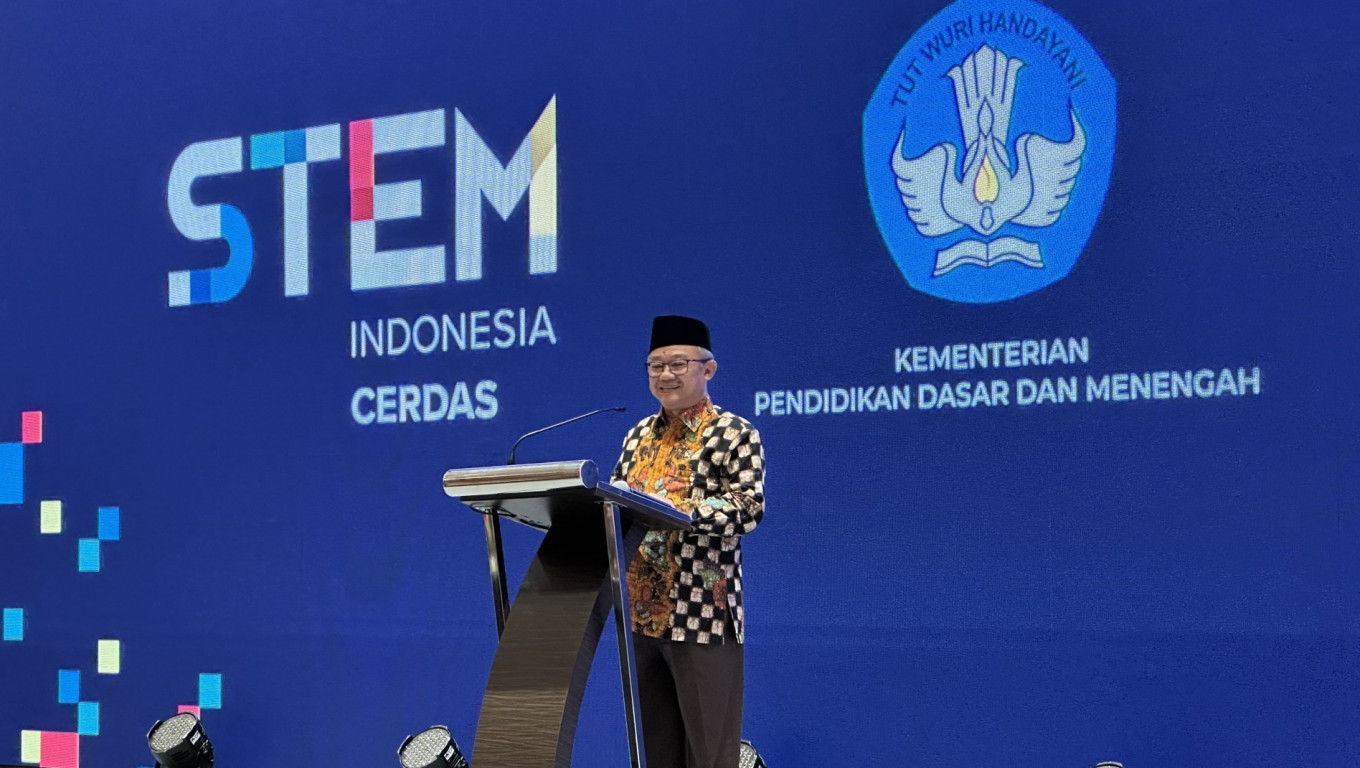Popular Reads
Top Results
Can't find what you're looking for?
View all search resultsPopular Reads
Top Results
Can't find what you're looking for?
View all search resultsIs Indonesia ready for AI in K-12 education?
If we adopt AI in education without fully understanding its implications, we risk spending valuable time and resources responding to problems we might have anticipated.
Change text size
Gift Premium Articles
to Anyone
 Elementary and Secondary Education Minister Abdul Mu'ti delivers a speech on May 28 during the launch of the STEM Indonesia Cerdas initiative to provide skills on artificial intelligence and STEM in Jakarta. The iniative aims to reach some 10 million students from 500 schools and is a collaboration by several ministries and the Riady Foundation. (Courtesy of Riady Foundation/-)
Elementary and Secondary Education Minister Abdul Mu'ti delivers a speech on May 28 during the launch of the STEM Indonesia Cerdas initiative to provide skills on artificial intelligence and STEM in Jakarta. The iniative aims to reach some 10 million students from 500 schools and is a collaboration by several ministries and the Riady Foundation. (Courtesy of Riady Foundation/-)
A
rtificial Intelligence is becoming the next big thing in education across the globe. In Indonesia, momentum is building: The Vice President has spoken repeatedly about integrating AI and computational thinking into the national curriculum from elementary to high school. But as excitement grows, so must our critical reflection.
The question is: Are we sure this is what we want for our children?
AI offers enticing possibilities. Adaptive learning platforms like Airis by Ruangguru have already incorporated AI to deliver personalized learning experiences. AI can scale content delivery, automate assessments and provide support in under-resourced areas.
However, the current AI hype often runs on emotion, not values and educational purpose. We must ask: What problem is AI trying to solve in Indonesian schools? Who defines that problem? And who benefits? If we adopt AI merely to follow global trends, we risk importing technologies that may not fit our social, cultural or pedagogical context.
The use of AI in classrooms is cause for concern. A 2025 study from MIT reported that students who used AI tools to complete writing tasks often produced content they could not later recall or rephrase. Their work felt "hollow", with students expressing a reduced sense of ownership.
AI also introduces new vulnerabilities. Many AI applications depend on vast quantities of personal data, posing risks to student privacy and safety. Problems like algorithmic bias, inaccurate outputs (known as hallucinations) and ethical grey areas remain unresolved in many tools currently on the market.
Without robust national policy and governance, these risks could become deeply embedded in everyday school life.


















